Unlock Top Rankings: Master Technical SEO Like a Pro
Unlock top rankings with expert technical SEO strategies. Master the art like a pro and dominate search results. Get ahead today!

Are you investing heavily in content creation, but your website traffic remains stagnant? You're not alone. Many businesses struggle to attract visitors despite having great content.
The culprit?
Technical SEO issues hindering your website's visibility in search engine results.
Imagine your website as a hidden gem tucked away in a maze. No matter how valuable your content is, potential customers won't find it if they can't navigate the maze. Technical SEO is the key that unlocks the maze, ensuring search engines can easily discover, understand, and showcase your website to the right audience.
This guide equips website owners, content creators, and anyone seeking SEO success with the knowledge to optimize their website for technical SEO.
By mastering these principles, you'll lay the groundwork for a thriving online presence, attracting more qualified visitors, and leads, and ultimately, driving business growth.
Demystifying Technical SEO: Your Website's Hidden Weapon
Technical SEO might sound complex, but fret not! It's essentially the behind-the-scenes optimization of your website, ensuring it adheres to search engine language.
Imagine a well-built house; a robust technical SEO foundation serves as its sturdy framework. Just like the framework supports the entire structure, a strong technical SEO foundation empowers search engines to effortlessly discover, understand, and showcase your website to the right audience, propelling you toward organic traffic and top rankings.
Why Technical SEO Matters
-
Search Engine Magnet: Search engines rely on crawlers to navigate websites and decipher their content. A technically sound website with a clear structure and crawlability is akin to an unfurled welcome mat for these crawlers. The smoother their journey, the higher the chances of your website appearing in search results.
-
Organic Traffic Powerhouse: High search engine visibility translates into a surge of organic traffic. When your website ranks well, you attract more visitors who discover you through relevant search queries. This influx of qualified leads can ultimately translate into conversions and business growth.
-
User Experience Bliss: Excellent technical SEO often goes hand-in-hand with a stellar user experience. Think blazing-fast loading times, intuitive navigation, and seamless mobile-friendliness – all hallmarks of technical SEO that keep your audience happy and engaged.
Core Technical SEO Principles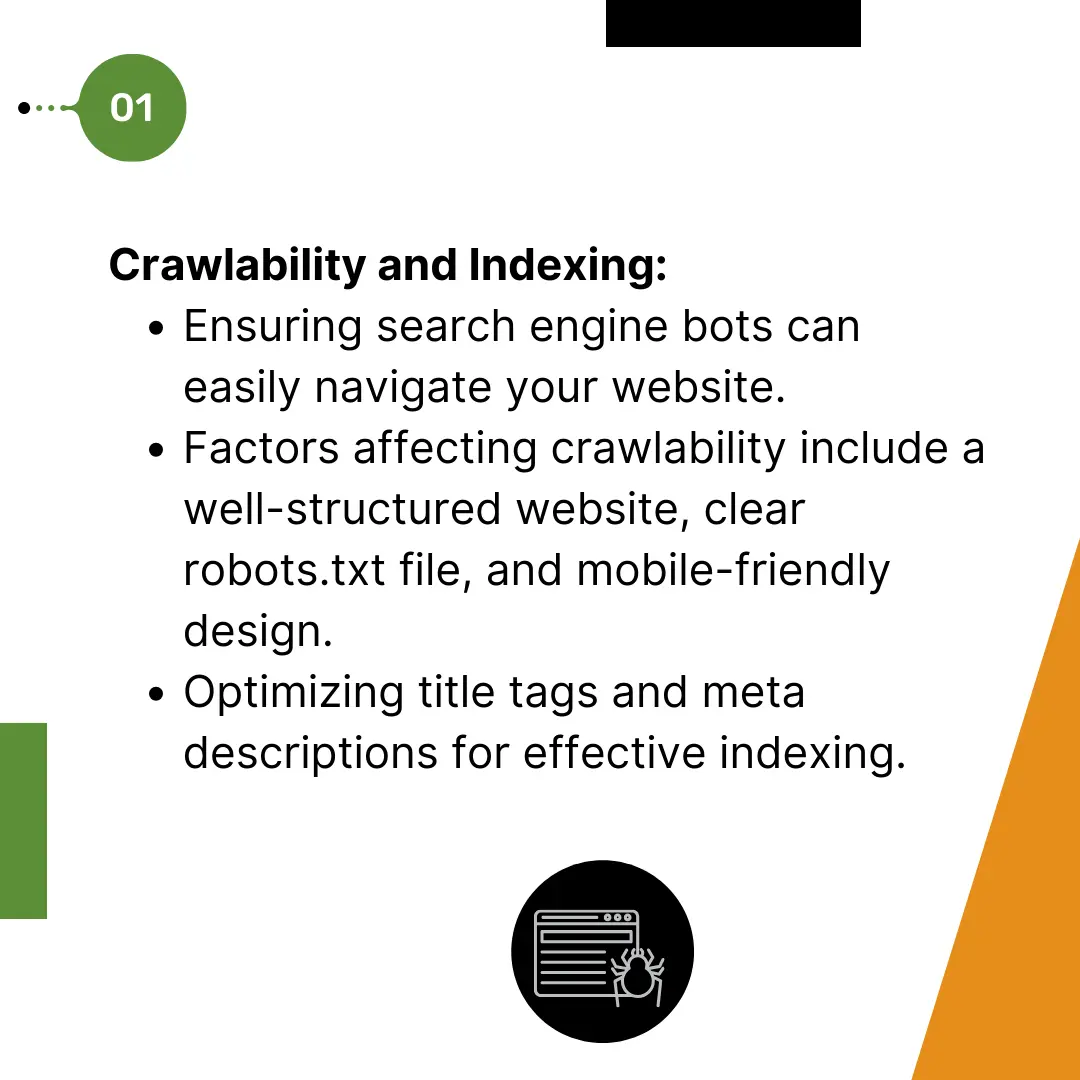
Crawlability, Indexing and Ranking: Getting Discovered by Search Engines
Search engines rely on crawlers to navigate and understand websites. These crawlers follow links and analyze content to determine what your website is about and how relevant it is to search queries.
-
Crawlability: Search engine crawlers, also known as bots or spiders, navigate the web by following links from one page to another. They systematically visit web pages, retrieve information, and store it in their databases. This process is known as crawling.
-
Indexing: After crawling, search engines analyze the content they've gathered and store relevant information about each web page in their index. Indexing involves organizing and storing the content in a massive database, making it searchable based on various factors such as keywords, relevance, and quality.
-
Ranking: Once indexed, search engines use complex algorithms to determine the relevance and authority of web pages for specific search queries. Pages are then ranked based on their perceived quality and relevance to the user's search intent. The goal is to display the most relevant and authoritative results at the top of the search engine results pages (SERPs).
For monitoring and maintaining your site's presence in Google Search results, consider using Google Search Console. It's a valuable tool provided by Google that offers insights into how Google crawls, indexes, and ranks your website.
Want to delve deeper into using Google Search Console for SEO? Check out this helpful resource: Mastering SEO with Google Search Console.
Structured Data and Schema Markup
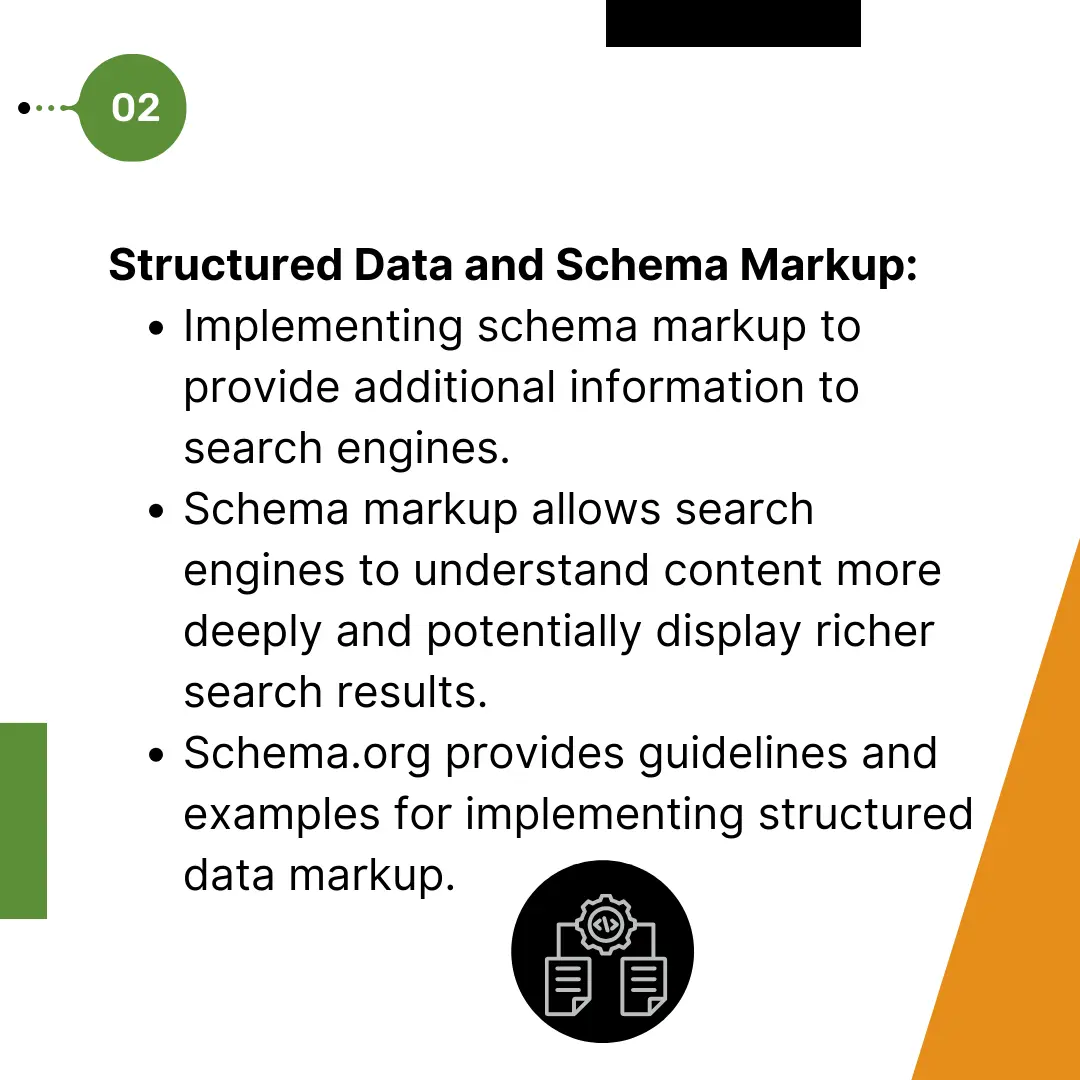
Structured data, also known as schema markup, is a powerful tool to enhance your website's search engine results. Think of it as adding extra context to your content, like labeling a box "holiday decorations" instead of just leaving it plain.
Schema markup helps search engines understand your content more deeply, potentially leading to richer search results. This can include star ratings for reviews, event details for upcoming lectures, or product descriptions for your online store.
Implementing schema markup can lead to increased click-through rates and improved user engagement. Searchers who see visually appealing and informative search results are more likely to click through to your website.
Ready to leverage schema markup for your website? Head over to the official Schema.org website for comprehensive guidelines, documentation, and code examples.
Technical Tools for Better Visibility
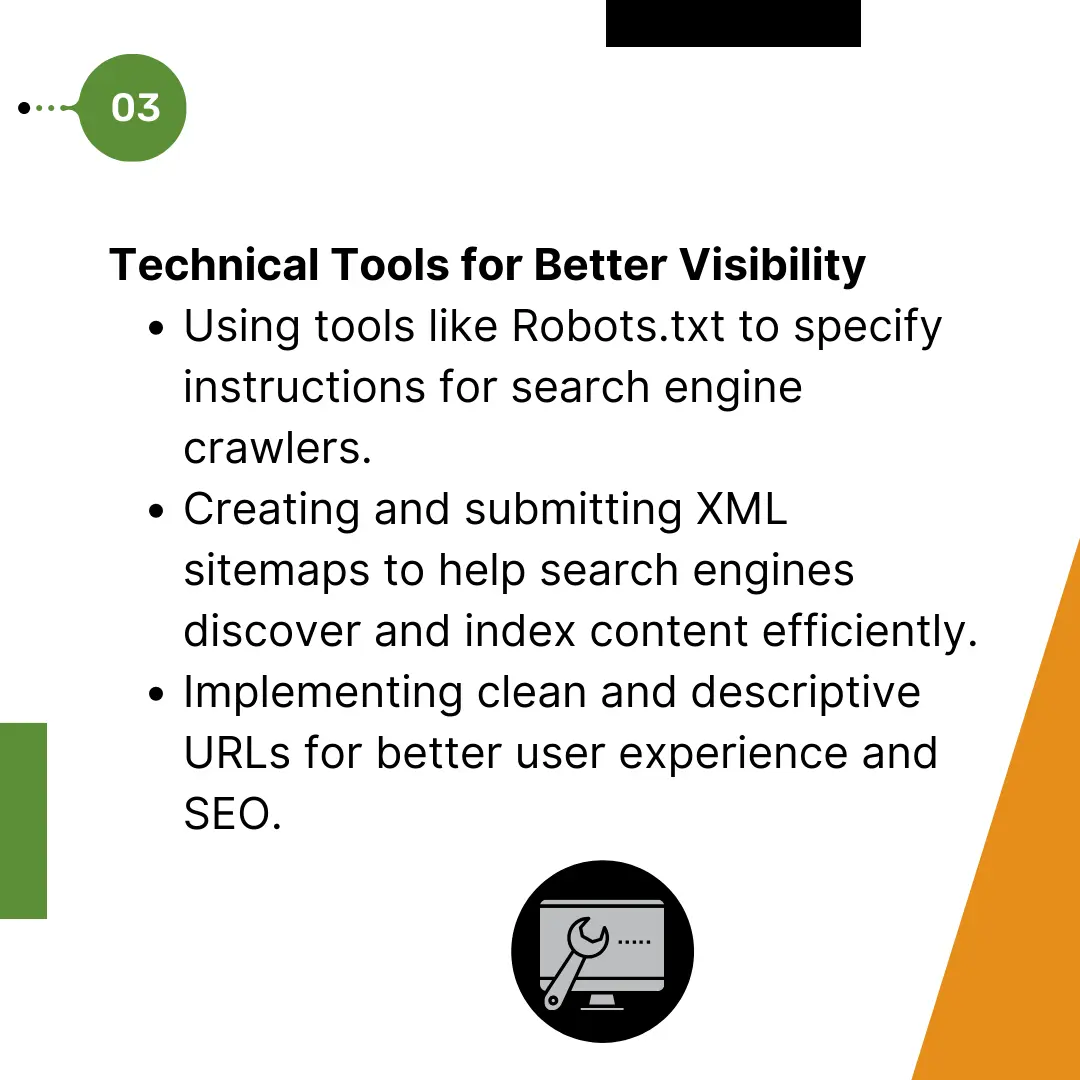
Now that we understand the process, let's explore some technical tools to optimize your website for crawlability and indexing:
-
Robots.txt: Think of robots.txt as a set of instructions for search engine crawlers. You can use it to specify which areas of your website you want crawlers to access and index.
-
XML Sitemaps: An XML sitemap acts like a comprehensive roadmap of your website, listing all your important pages. Submitting an XML sitemap to search engines helps them discover and index your content more efficiently.
-
URL Structure: Clean and descriptive URLs are crucial for both crawlers and users. They act like signposts, clearly indicating the content of a webpage.
Tools like Semrush offer a suite of features for keyword research, site auditing, and competitor analysis, empowering you to enhance your website's visibility in search results.
Building a Website Structure Loved by Users and Search Engines
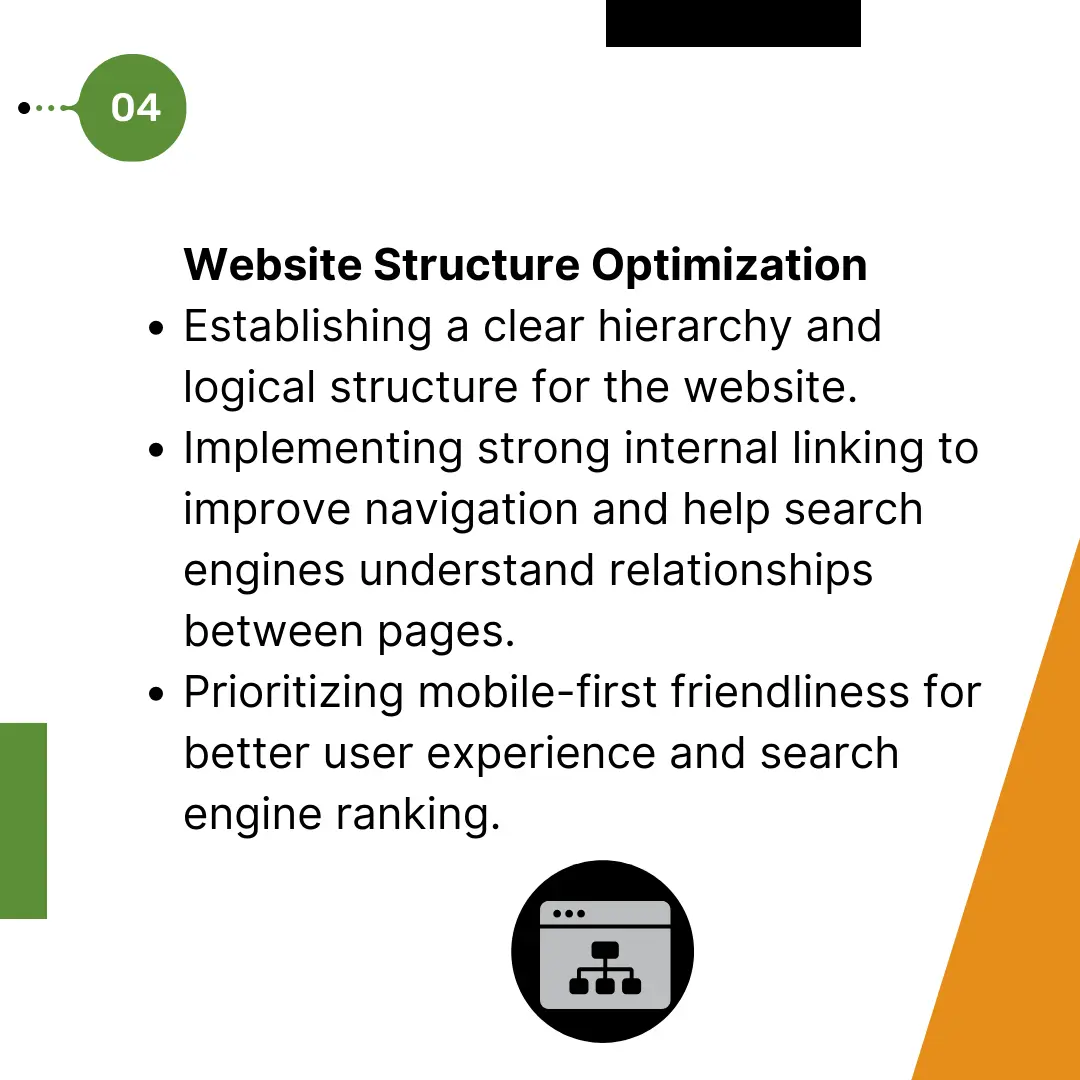
Crafting a user-friendly website structure is a win-win for SEO. Not only does it keep visitors happy and engaged, but it also helps search engines understand your website better.
-
Clear Hierarchy: Imagine your website as a well-organized library. A logical structure with clear categories and subcategories makes it easy for users to find the information they need. Search engines also appreciate clear hierarchy, as it helps them crawl and index your content efficiently.
-
Internal Linking: Internal linking is the practice of linking to other relevant pages on your website. Think of it like creating a web of information that guides users on a journey through your content. Strong internal linking not only improves user experience by making navigation seamless, but it also helps search engines understand the relationships between your pages and their overall importance.
-
Mobile-First Friendliness: In today's mobile-dominant world, a website that doesn't function flawlessly on smartphones and tablets is practically invisible. Search engines prioritize mobile-friendly websites in search results. Ensuring your website offers a smooth user experience on all devices is not just about SEO; it's about catering to your audience and keeping them coming back for more.
Want to delve deeper into mastering Mobile SEO? This article provides valuable insights and actionable strategies: Master Mobile SEO: Attract Users & Boost Conversions.
-
Website Security (HTTPS): HTTPS stands for Hypertext Transfer Protocol Secure. Websites with HTTPS have a secure connection established using an SSL certificate. This encrypts communication between the website and the visitor's browser, protecting sensitive information like login credentials and credit card details.
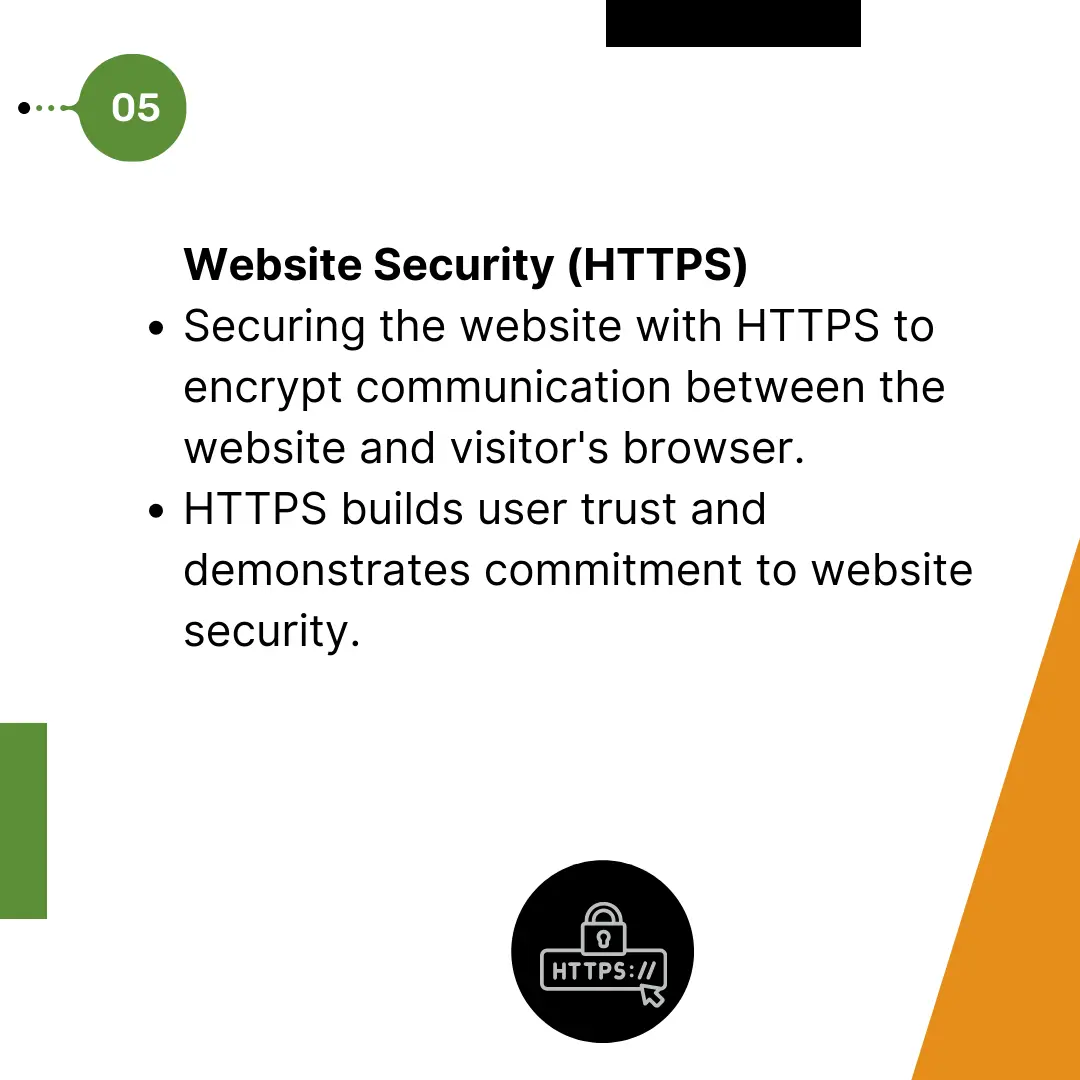
The Impact of Speed: Every Second Counts
Website speed is no longer a luxury - it's a critical factor for both SEO and user experience. Did you know that a one-second delay in page load time can decrease your conversion rate by 7%?
Search engines like Google prioritize fast-loading websites in search results, so optimizing your website speed is essential for ranking well. The faster your website loads, the happier and more engaged your visitors will be, ultimately leading to higher conversion rates.
Optimizing for Speed: Your Website's Fast Lane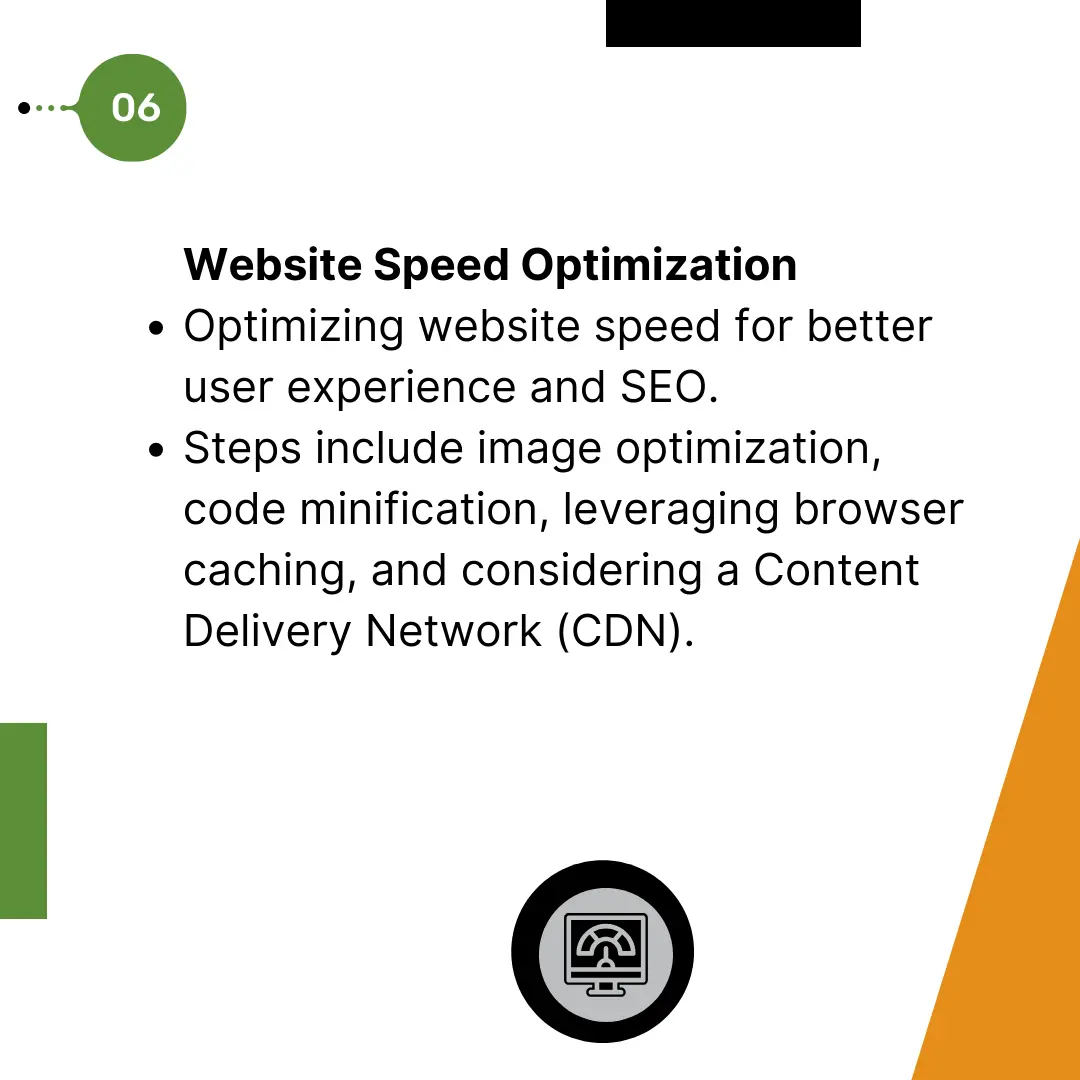
The good news is that there are several steps you can take to improve your website speed:
-
Image Optimization: Images are often the biggest culprits behind slow loading times. Learn how to compress images without sacrificing quality using tools like TinyPNG or ShortPixel.
-
Code Minification: Streamline your website's code by removing unnecessary characters and spaces. This can significantly improve loading speed. Plugins like Autoptimize can help automate this process for WordPress websites.
-
Leverage Browser Caching: Make friends with browser caching! This allows visitors' browsers to store website elements like images and scripts locally, so they don't have to download them every time they visit a page. Most web hosting providers offer caching options you can enable.
-
Consider a Content Delivery Network (CDN): A CDN stores your website content on servers around the globe, ensuring fast loading times for visitors regardless of their location. Popular CDN options include CloudFlare and Amazon CloudFront.
If you're using WordPress, consider installing the Yoast SEO Plugin. This popular plugin offers features for optimizing your website's on-page SEO, including XML sitemap generation and content analysis.
Advanced Tactics to Take Your SEO to the Next Level
Mastered the technical Search Engine Optimization basics? Let's dive into some advanced tactics to take your website's SEO performance to the next level:
1. Internationalization (i18n) Deep Dive:
-
Multilingual Content Strategy: Develop a content strategy that caters to your target languages. This involves translating existing content and creating localized content that resonates with your international audience.
-
Geotargeting: Leverage Search Console to target specific geographic locations. This allows you to tailor your website's content and ranking strategy for each region.
-
Multilingual URL Structures: Strategize your URL structures to effectively represent different languages. Consider subdirectories, subdomains, or gTLDs (country code top-level domains) depending on your target audience and website goals.
-
Log File Analysis: Server log files contain valuable data on how search engine crawlers interact with your website. By analyzing these logs, you can identify crawl errors, broken links, and potential indexing issues that might be hindering your SEO. Tools like Screaming Frog and Apache access logs can help you analyze and interpret this data.
2. Mobile-First Indexing:
Google has transitioned to mobile-first indexing, meaning the mobile version of your website is considered the primary source for indexing and ranking. Ensure your mobile website is well-optimized for technical SEO and user experience. This includes fast loading speed, responsive design, and clear navigation optimized for touchscreens.
Attract More Clients & Drive Sales with Our Digital Marketing Agency
-
SEO: Unlock more SEO traffic and see real results with our expert optimization services.
-
Content marketing: Attract and retain customers with high-quality, engaging content that drives traffic and generates leads.
-
Social media marketing: Our team creates epic content that will get shared, get links, and attract traffic on social media platforms.
-
Google Ads: Effective paid strategies with clear ROI. Let our team help you get the most out of your ad spend.
-
Email marketing: Connect with your audience and drive conversions with targeted email campaigns.
-
Web design and development: A visually appealing and user-friendly website is key to attracting and retaining visitors. Our team can help you create a website that converts.
3. AMP (Accelerated Mobile Pages): Implementing AMP can significantly improve the loading speed of your mobile pages. This can lead to better user experience and potentially improve your mobile search rankings. Learn more about AMP in Google AMP Project works here.
4. Rich Results Optimization:
Go beyond basic schema markup to optimize your website for rich results. This can involve implementing specific schema types for recipes, videos, products, events, and more. Rich results can lead to more visually appealing search results and potentially higher click-through rates.
Steer Clear of Technical SEO Trouble: Common Pitfalls and How to Avoid Them
Even the most SEO-savvy websites can encounter technical hiccups.
Let's explore some common pitfalls and how to avoid them:
-
Duplicate Content: Search engines are not in favor of duplicate content as it can lead to confusion and can weaken your SEO efforts. It’s important to address this issue by identifying any duplicate content on your website. Solutions include using canonical tags or consolidating content, which can help enhance the SEO effectiveness of your valuable content.
-
Broken Links: Broken links can hinder user experience and harm your website's SEO. They act like roadblocks for visitors, leading to frustration and potential abandonment of your site. Ensuring your website is free of broken links is essential for maintaining a healthy and user-friendly online presence.
-
Missing Title Tags and Meta Descriptions: Title tags and meta descriptions play a crucial role in attracting clicks from search engine results pages (SERPs). When these elements are missing or poorly written, it can result in missed opportunities for driving traffic to your site. Crafting compelling title tags and meta descriptions that accurately reflect your content is key to enticing users to click through to your website.
-
Robots.txt Rumble: Your robots.txt file acts like a traffic director for search engine crawlers, telling them which areas of your website to access and index. Misconfigured robots.txt can accidentally block search engines from valuable content. We'll provide clear instructions and an example of a well-structured robots.txt file to ensure you guide search crawlers effectively.
-
Thin Content: Thin or low-quality content can harm your website's SEO performance. Search engines prioritize high-quality, valuable content that provides meaningful information to users. Thin content, which lacks depth or relevance, may result in lower search rankings or even penalties from search engines. To avoid this pitfall, focus on creating comprehensive, well-researched content that addresses the needs and interests of your target audience.
Unleash the Power of SEO: Your Technical SEO Toolkit
Congratulations! You've explored the fundamentals of technical SEO and equipped yourself with a powerful toolkit to optimize your website for search engines.
Remember these key takeaways:
-
Technical SEO is the Foundation: It's the groundwork that ensures search engines can find, understand, and effectively rank your website.
-
Core Principles Matter: Mastering crawlability, website architecture, speed optimization, and other core principles will significantly enhance your SEO efforts.
-
Advanced Tactics Await: As your SEO knowledge grows, explore advanced strategies like schema markup and internationalization to unlock your website's full potential.
-
Stay Updated: The SEO landscape evolves constantly. Stay informed about the latest trends and best practices to maintain a competitive edge.
Take Action and See Results
Don't wait any longer! Put your newfound technical SEO knowledge into action and witness the positive impact on your website's visibility.
Here's how to get started:
-
Implement the Strategies: This guide provides actionable tips and to help you optimize your website for technical SEO.
-
Explore Additional Resources: Dive deeper with the helpful tools and websites linked throughout this guide.
-
Get Expert Help: For those seeking a faster track to SEO success, consider hiring an SEO consultant. 10 Reasons Why You Should Hire An SEO Consultant outlines the benefits of partnering with a professional.
Our experienced SEO specialists can help you create a customized strategy to achieve your website's full potential. Contact us HERE today!
Ready to take your SEO journey to the next level? Let's get started!
By following the strategies outlined in this comprehensive guide, you'll establish a solid technical SEO foundation, empowering your website to attract high-quality traffic, convert visitors into leads, and ultimately drive business growth.

Strategist Profile
Abala Tom
Digital systems strategist specializing in high-performance SEO, Google Ads, and conversion optimization. Mission: to replace marketing 'guesswork' with predictable revenue systems.